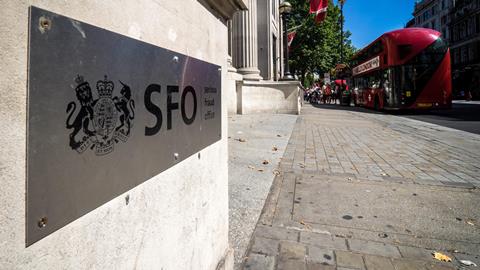The Serious Fraud Office must disclose the total cost of its investigation into mining giant Eurasian Natural Resources Corporation in accordance with a Freedom of Information request.
The SFO has been given 42 days to comply with the request as decided by the First-Tier Tribunal and risks being in contempt of court if it does not comply. The organisation was asked for the total cost of the ENRC investigation including the costs of the main investigation and any costs incurred by cases directly related to the conduct of the main case.
A criminal investigation into the ENRC was opened by the SFO in 2013 over suspected bribes paid by the company and individuals to secure access to mining contracts. In August 2023, after a 10-year investigation, the SFO said it had ‘insufficient admissible evidence to prosecute’ and the case was dropped.
Though the SFO responded to the request confirming it held the information, it refused to disclose it on the basis ‘that such disclosure would be likely to prejudice the prevention or detection of crime, apprehension or prosecution of offenders, and the administration of justice’.
George Greenwood, a journalist who made the request, complained to the information commissioner who found the SFO was entitled to refuse to disclose the information. Greenwood appealed.
A legal battle between the Kazakh mining company and SFO has been ongoing in the High Court. ENRC won part of its High Court claim against international firm Dechert and its former head of white-collar crime Neil Gerrard in relation to the SFO’s investigation.
Read more
In the May 2022 judgment, the inducement claim brought by the ENRC against the SFO had been made out (subject to causation and loss) in respect of 15 disputed contacts. The misfeasance claim was not made out.
In a 185-page judgment handed down in December 2023, Mr Justice Waksman found the SFO was a ‘vital participant in the overall wrongdoing’ of Gerrard whom it ‘actively encouraged’ in relation to the ENRC investigation.
The judgment said: ‘It was Dechert which took the initiative, both with ENRC in terms of seeking to expand the investigation (which in fact started before the SFO was involved) … Nonetheless, the SFO was a vital participant in the overall wrongdoing’.
Sitting in the first-tier tribunal of the General Regulatory Chamber, Judge Hazel Oliver said that although damage to the SFO’s ability to carry out its role effectively is not in the public interest, the tribunal had not found ‘that the prejudice “would” be caused in this case’.
Finding that the SFO was not entitled to withhold the requested information and upholding the appeal, the judge said: ‘We find that the public interest in maintaining the exemption does not outweigh the public interest in disclosing the information.
‘Although there is clear public interest in not disclosing the information, this is insufficient to outweigh the particularly strong public interests in disclosure in this particular case. We emphasise that this is a finding on these facts in relation to the ENRC investigation and case costs, and the public interest balance may, and indeed is likely to, differ for other similar requests.’
This article is now closed for comment.




























2 Readers' comments